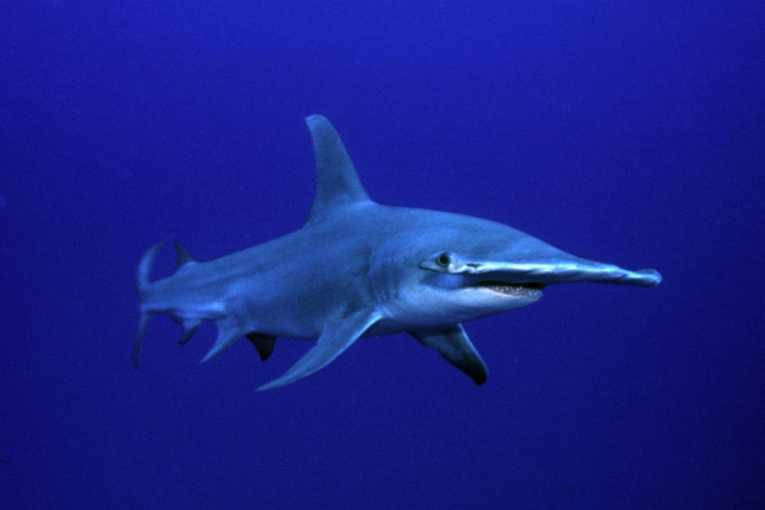Endangered great hammerhead sharks have been tracked by satellite into the North Atlantic for the first time by scientists at the University of Miami. The animals are under threat from shark finning operations who prize them for their large fins.
'It is vital to track sharks to identify hotspots - places that are important for feeding, mating or pupping, and to discover their largely unknown migration routes. Without the knowledge of how they use the seas, it is difficult to make a plan for the animal's conservation, said Neil Hammerschlag Rosenstiel school researcher and director of the RJ Dunlap programme at the University.
This first tracked animal headed northeast from south Florida to a point in the mid Atlantic 500 kms off New Jersey and swam a distance of 1,200 km (745 miles) in 62 days, an extraordinary distance in a short time. 'We think that the shark was probably following food species like mahi-mahi or jacks off the continental shelf in the open Atlantic into international waters where they are vulnerable to illegal shark finning,' added the scientist.
The problem for the great hammerhead is not only its slow reproduction rate which makes its populations vulnerable to fisheries, but that the animal has very large fins that are particularly dense in the cartilaginous fibres that the Asian fin soup market prizes. These sharks are being directly targetted. 'Shark fin soup can cost between $20 and $1,000 a bowl depending on the species, and great hammerhead fin soup is right up there at the top end of the market,' says Hammerschlag.
The great hammerhead is the largest of all the hammerhead species and can grow to 5.5 metres. Larger adult sharks may prey on juveniles but adults have no natural predators except for man. According to the International Union for Conservation of Nature, the great hammerhead is thought to have declined in numbers by as much as 50% in the last decade. Forensic DNA analysis on great hammerhead fins in the Asian markets have shown that most of the fins are coming from the endangered Atlantic population.
'Understanding more about the movements of these species is undoubtedly essential, and there is still much to learn. However, as with other pelagic species these sharks are already under significant threat and enough is known to trigger concerns and highlight the need to secure effective management as a matter of urgency,' said Ali Hood, Director of Conservation of the Shark trust. 'We will continue to advocate for the Regional Fisheries Management Organisation to ensure compliance with existing finning regulations and offer protection for vulnerable species caught in high-seas fisheries.'
This research was published in the current issue of Endangered Species Research.
Image Credit Dr. Neil Hammerschlag / www.neilhammer.com










